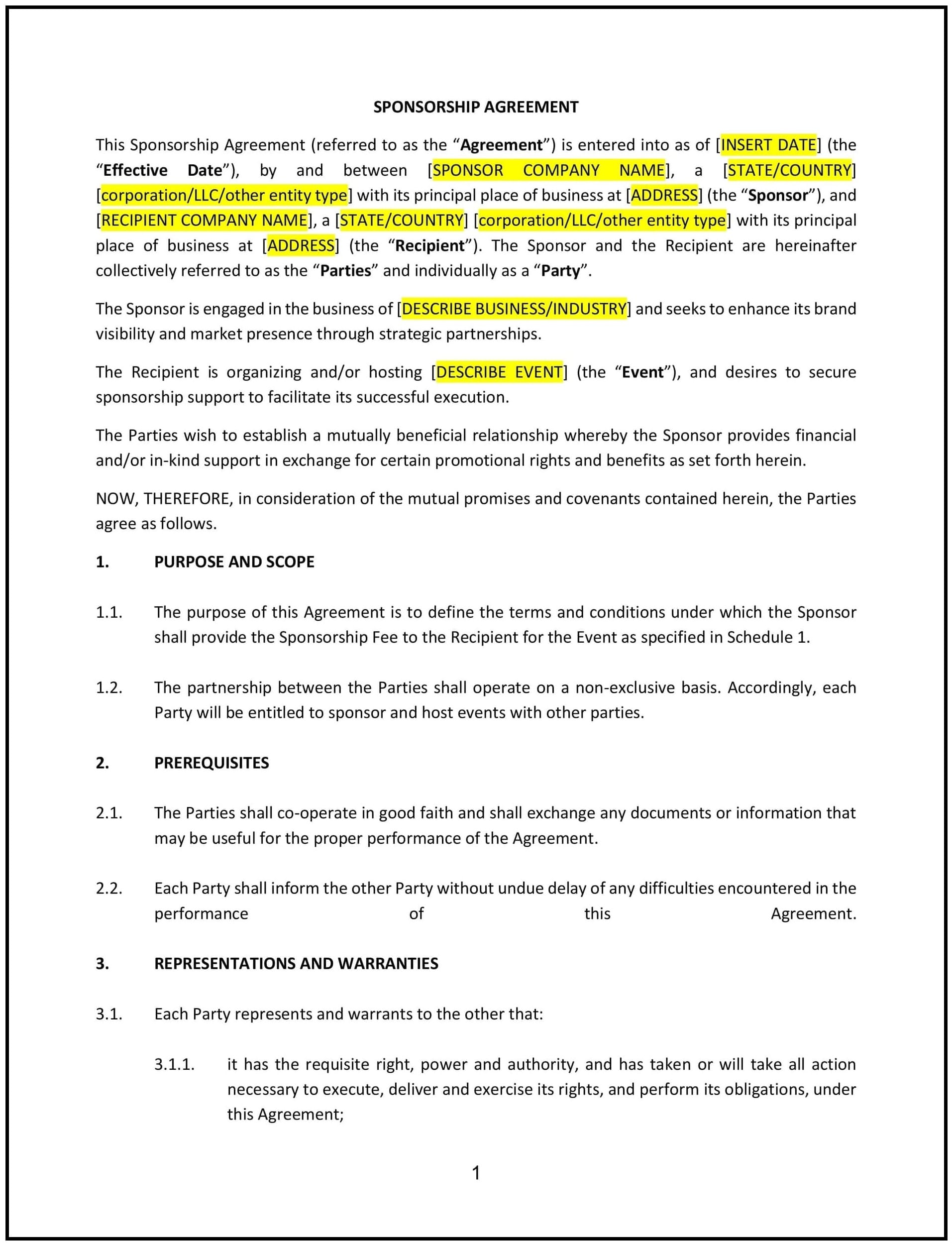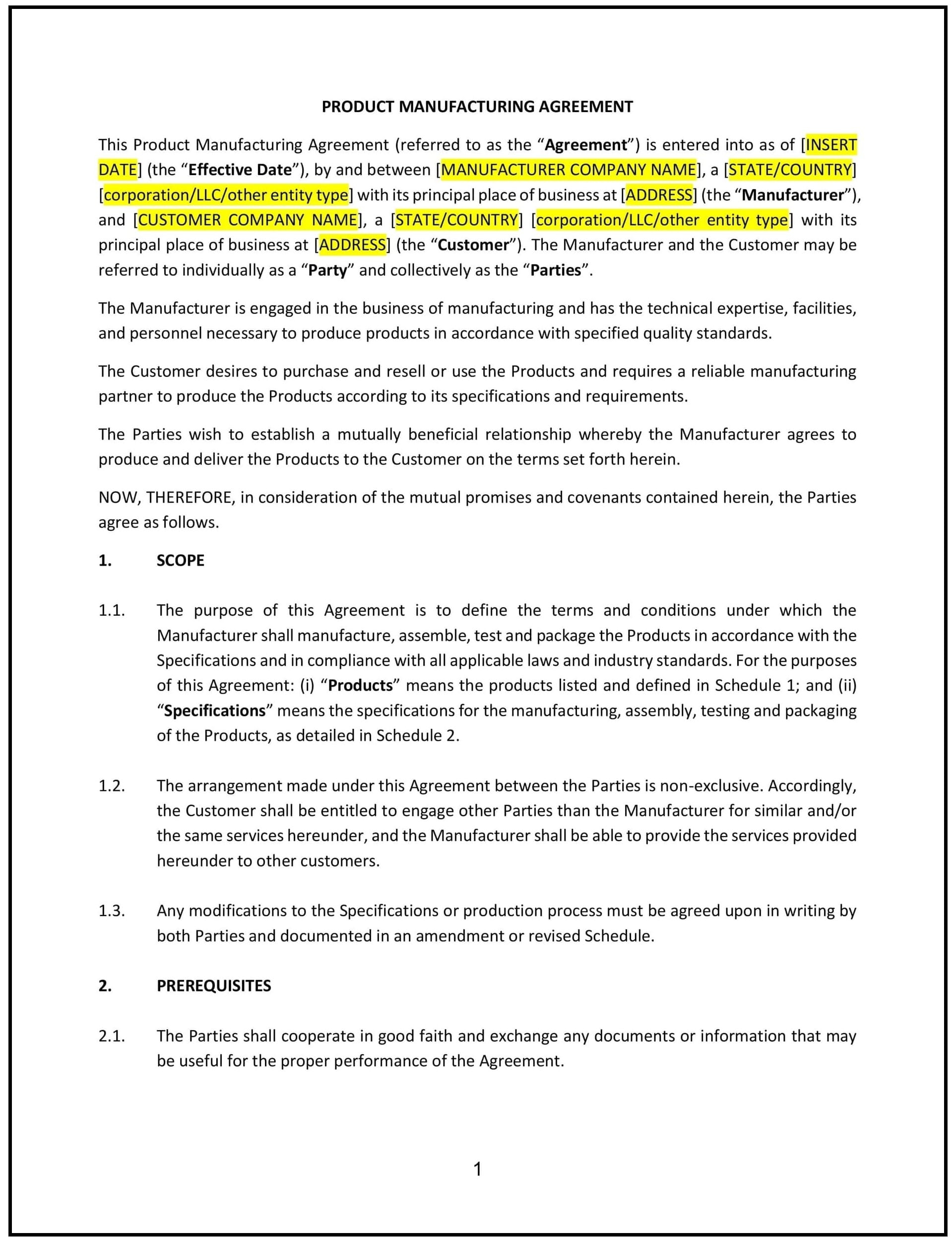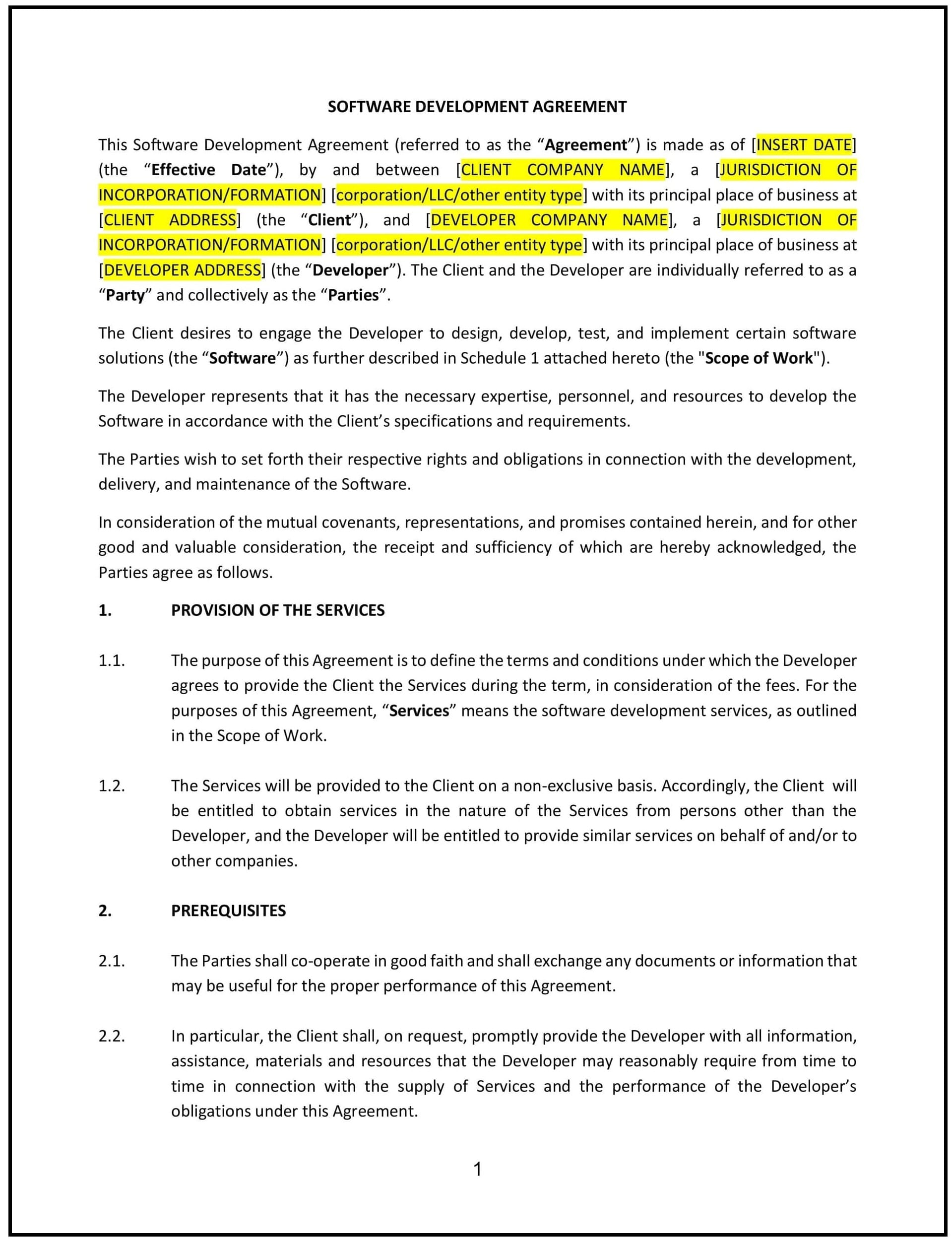Revenue Share Agreement (Alabama): Free template
Revenue Share Agreement (Alabama)
A Revenue Share Agreement is a legally binding contract between two or more parties that outlines how revenue generated from a specific business activity, product, or service will be distributed among the parties. In Alabama, Revenue Share Agreements are commonly used in industries such as software development, e-commerce, entertainment, real estate, and franchising. These agreements ensure clarity on revenue distribution, performance expectations, reporting obligations, and alignment with Alabama’s legal framework.
For example, a Birmingham-based tech startup might use a Revenue Share Agreement to formalize its partnership with a Montgomery-based marketing agency to share profits from a co-developed AI-driven advertising platform. A well-drafted Revenue Share Agreement ensures transparency, minimizes disputes, and complies with Alabama’s contract laws and consumer protection statutes.
Tips for drafting and maintaining a Revenue Share Agreement in Alabama
- Define the scope of the agreement: Clearly specify the business activity, product, or service generating the revenue to be shared. Ensure the agreement outlines each party’s roles, responsibilities, and contributions. Example: “The Parties agree to collaborate on the development and marketing of an AI-driven advertising platform (the ‘Platform’), with revenue generated from Platform subscriptions to be shared as outlined herein.”
- Specify revenue-sharing percentages: Clearly define the percentage or fixed amount of revenue each party will receive. Include details about whether the revenue share is based on gross revenue, net revenue, or another metric. Example: “Party A will receive 60% of the net revenue, while Party B will receive 40% of the net revenue. Net revenue is defined as total revenue minus direct costs associated with delivering the Platform.”
- Outline payment terms: Detail how and when payments will be made, including payment schedules, invoicing procedures, late payment penalties, and any additional costs or deductions. Example: “Payments will be made monthly within 15 days of the end of each calendar month. Payments will be accompanied by a detailed report outlining revenue calculations and deductions.”
- Establish reporting and auditing requirements: Specify the frequency and format of financial reports, as well as the right of either party to audit the other’s records to ensure accuracy and compliance. Example: “Party A will provide Party B with a monthly revenue report detailing all transactions, deductions, and revenue calculations. Party B reserves the right to conduct an annual audit of Party A’s financial records related to the Platform.”
- Clarify intellectual property rights: Define ownership of any intellectual property created or used during the collaboration. Specify whether intellectual property rights are shared, retained by one party, or licensed. Example: “All intellectual property related to the Platform remains the exclusive property of Party A. Party B is granted a non-exclusive, non-transferable license to use the Platform during the term of this agreement.”
- Address confidentiality and data security: Protect sensitive information shared between the parties by including confidentiality clauses that comply with Alabama’s trade secret and privacy laws. Address data security measures to safeguard financial and operational data. Example: “Both parties agree to maintain the confidentiality of all proprietary information disclosed during the term of this agreement and for a period of 3 years thereafter. Each party will implement industry-standard encryption and access controls to protect shared data.”
- Set termination provisions: Define the circumstances under which the agreement can be terminated, such as breach of terms, mutual consent, or expiration of the agreement. Include steps for transitioning responsibilities if the agreement ends. Example: “Either party may terminate this agreement with 30 days’ written notice if the other party fails to comply with the terms outlined herein. Upon termination, all outstanding payments will be settled within 30 days.”
- Include dispute resolution mechanisms: Specify how disputes will be resolved, whether through negotiation, mediation, arbitration, or litigation. Include jurisdiction and governing law clauses to streamline the process. Example: “Any disputes arising under this agreement shall be resolved through binding arbitration in accordance with the rules of the American Arbitration Association. The arbitration will take place in Jefferson County, Alabama, and the decision will be final and binding.”
- Align with Alabama-specific laws: Ensure the agreement adheres to Alabama’s contract laws, including the Alabama Uniform Commercial Code (UCC) for transactions involving goods. Additionally, address compliance with consumer protection statutes, such as the Alabama Deceptive Trade Practices Act (ADTPA), and tax regulations. Example: “This agreement shall be governed by and construed in accordance with the laws of the State of Alabama. Both parties agree to comply with all applicable state and federal laws, including consumer protection and tax regulations.”
- Specify warranties and disclaimers: Include any warranties provided by the parties, such as performance guarantees, as well as disclaimers for issues outside their control. Example: “Party A warrants that the Platform will perform substantially in accordance with the documentation provided. However, Party A disclaims any liability for damages caused by third-party integrations, hardware failures, or acts of nature.”
Frequently asked questions (FAQs)
Q: Is a Revenue Share Agreement enforceable in Alabama?
A: Yes, as long as the agreement is clear, reasonable, and complies with Alabama contract laws, it is legally enforceable. Including specific terms and signatures from all parties strengthens its validity.
Q: What key elements should a Revenue Share Agreement include in Alabama?
A: It should include the scope of the agreement, revenue-sharing percentages, payment terms, reporting and auditing requirements, intellectual property rights, confidentiality provisions, termination clauses, dispute resolution mechanisms, alignment with Alabama laws, and warranties/disclaimers.
Q: Can a Revenue Share Agreement be ended early in Alabama?
A: Yes, if the agreement includes a termination clause, either party can terminate the agreement with reasonable notice. The terms should specify the conditions and procedures for termination, including settlement of outstanding payments.
Q: What industries frequently use Revenue Share Agreements in Alabama?
A: Industries such as software development, e-commerce, entertainment, real estate, franchising, and joint ventures frequently use Revenue Share Agreements in Alabama. For instance, a Huntsville-based tech company might partner with a local business to share profits from a co-developed SaaS platform.
Q: How can disputes over a Revenue Share Agreement be resolved in Alabama?
A: Disputes can often be resolved through negotiation or mediation to avoid costly litigation. However, if necessary, disputes may be resolved in court or through arbitration, depending on the terms specified in the agreement. Including a clear dispute resolution clause in the contract—such as requiring arbitration or specifying jurisdiction in Alabama courts—can streamline the process and reduce uncertainty.
This article contains general legal information and does not contain legal advice. Cobrief is not a law firm or a substitute for an attorney or law firm. The law is complex and changes often. For legal advice, please ask a lawyer.


